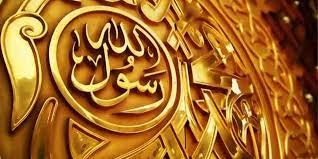Pillars of Islam: The Cornerstones of the Muslim Faith
The Pillars of Islam are the foundation of the Muslim faith and are the Five Pillars of Islam, which are the declaration of faith, daily prayers, giving to charity, fasting during Ramadan, and pilgrimage to Mecca. These five practices are mandatory for all (eligible) Muslims, and their purpose is to help strengthen their faith and bring them closer to God.
The Declaration of Faith (Shahada)
The declaration of faith, also known as the Shahada, is the first and most important of the Five Pillars of Islam. It is a simple statement that every Muslim must recite and believe in, declaring their faith in the Oneness of God and in the prophet Muhammad as His messenger. The Shahada is the cornerstone of the Muslim faith and represents the foundation upon which the other four pillars are built.
The Importance of the Shahada
The Shahada is not only a declaration of faith, but it is also a declaration of loyalty to God and to the teachings of Islam. It is a declaration of commitment to living a life based on the principles and teachings of the religion. The Shahada is so important that it is one of the first things a new convert to Islam will recite, and it is also the last thing a Muslim will recite before dying.
Daily Prayers (Salah)
The second of the Five Pillars of Islam is daily prayers, also known as Salah. Muslims are required to perform five daily prayers, The five daily prayers are performed at specific times throughout the day and include: Fajr (dawn), Dhuhr (noon), Asr (afternoon), Maghrib (sunset), and Isha (evening). These prayers are performed facing the Kaaba in Mecca, and they include a combination of physical movements, recitation of verses from the Quran, and supplications to God.
The Importance of Daily Prayers
Daily prayers are obligatory and serve as a way for Muslims to connect with God and maintain their spiritual health. Allah Almighty, in the Quran, has commanded Muslims to perform daily prayers as a means of demonstrating their devotion and submission to Him. They also help to build discipline and structure in a person’s life, reminding them of their obligations to God and to their faith. The daily prayers also serve as a way for Muslims to express gratitude for the blessings they have received and to ask for guidance and support from God.
Giving to Charity (Zakat)
The third of the Five Pillars of Islam is giving to charity, also known as Zakat. The word “Zakat” means “purification” or “growth”, and it is a way of purifying one’s wealth and ensuring that it is being used in accordance with Islamic principles. According to Islamic teachings, Muslims who have reached a certain level of wealth are required to give a specified portion of their income, typically 2.5%, to those in need, such as the poor and those who are struggling. This includes the poor, orphans, widows, and other vulnerable individuals. This practice helps to ensure that wealth is distributed fairly and provides support to those who are less fortunate.
The Importance of Zakat
Zakat is obligatory for those who have a certain level of wealth. it is a way to help others, but it is also a way to purify one’s own wealth and demonstrate a commitment to justice and fairness. It is also a way to demonstrate gratitude for the blessings one has received and to share with others. Zakat serves as a way to build a sense of community and to ensure that everyone has the means to meet their basic needs.
Fasting During Ramadan (Sawm)
The fourth of the Five Pillars of Islam is fasting during Ramadan, also known as Sawm. Fasting during Ramadan is Fardh (obligatory) for Muslims. Muslims are required to fast from sunrise to sunset during the month of Ramadan, abstaining from food, drink, and other physical needs from dawn until sunset. This practice helps to build self-discipline and to demonstrate solidarity with those who are less fortunate.
The Importance of Ramadan Fasting
Ramadan fasting serves as a way for Muslims to purify their minds and bodies and to demonstrate their devotion to God. It also helps to build empathy for those who are less fortunate and to demonstrate.
The Pilgrimage to Mecca, (Hajj)
The Fifth Pillar of Islam is the Pilgrimage to Mecca, also known as Hajj. It is an annual pilgrimage that takes place during the Islamic month of Dhu al-Hijjah, and it is one of the Five Pillars of Islam. it is obligatory and incumbent on all Muslims who are physically and financially able to make the pilgrimage, but only if their absence will not place hardships on their family.
The Importance of Hajj
As Hajj is incumbent on all Muslims who are physically and financially able to make the pilgrimage and it is also Muslims perform a series of rituals that symbolize their devotion to Allah and their commitment to living a life guided by their faith. These rituals include Tawaf (walking) seven times around the Kaaba, Qiyam (standing) in the plain of Arafat, and performing other acts of worship and devotion.













